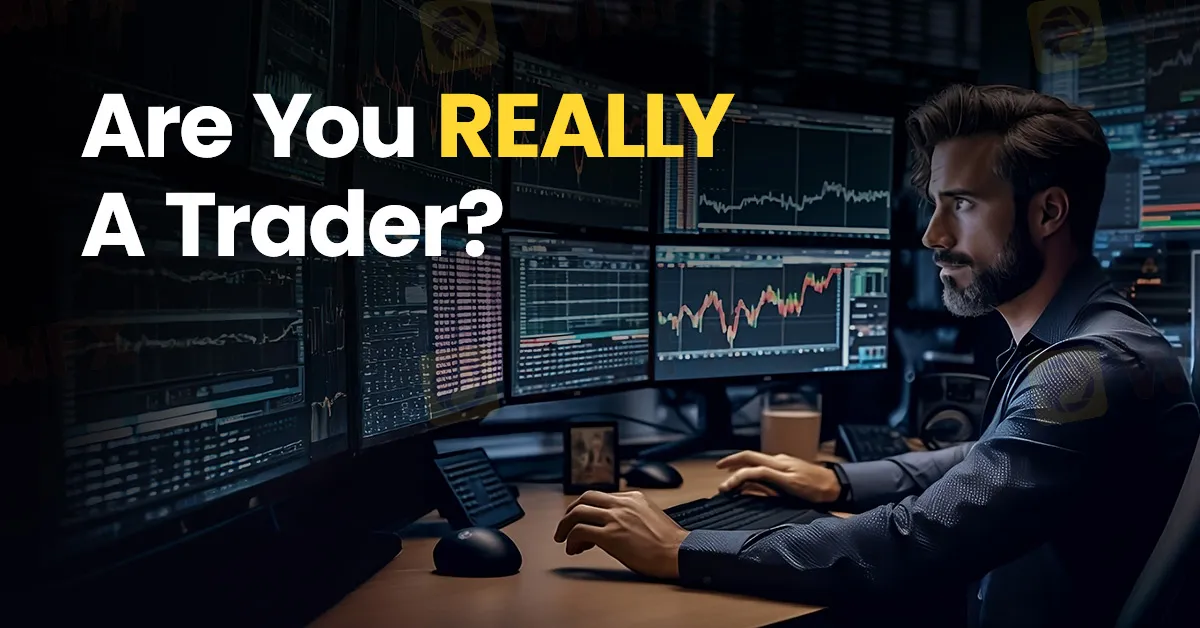简体中文
繁體中文
English
Pусский
日本語
ภาษาไทย
Tiếng Việt
Bahasa Indonesia
Español
हिन्दी
Filippiiniläinen
Français
Deutsch
Português
Türkçe
한국어
العربية
Are You REALLY a Trader?
Abstract:In the fast-paced world of forex and cryptocurrency trading, the allure of quick profits and the thrill of the market can often blur the lines between serious traders and those chasing an adrenaline rush. But, are you REALLY a trader?

In the fast-paced world of forex and cryptocurrency trading, the allure of quick profits and the thrill of the market can often blur the lines between serious traders and those chasing an adrenaline rush. But, are you REALLY a trader? This question delves into the core of your motivations and your approach to trading. Are you in it for the excitement, or are you treating it as a serious business venture with a well-thought-out risk management plan?

Many individuals are drawn to trading because of the adrenaline rush it offers. The market's volatility provides a constant stream of stimuli that can become addictive. The rapid price movements, the possibility of significant gains, and the fear of missing out (FOMO) can all contribute to a sense of excitement that is hard to resist.
However, this approach often leads to decisions driven by fear and greed rather than rational analysis. Emotional trading is a common pitfall. When you are swayed by your emotions, you may find yourself making impulsive trades without a solid strategy, over-leveraging in hopes of hitting a home run, or panic-selling at the first sign of a downturn. This behaviour is not sustainable and typically results in significant losses.

On the other hand, treating trading like a business involves a disciplined and strategic approach. Successful traders view their trading activities as a business operation, where every decision is made based on thorough analysis and a calculated risk management plan.
A well-defined trading plan is the cornerstone of serious trading. This plan should include your trading goals, risk tolerance, entry and exit strategies, and criteria for selecting trades. It acts as a roadmap, guiding you through the market's ups and downs with a clear strategy in place.
Risk management is critical in trading. This involves setting stop-loss orders to limit potential losses, diversifying your portfolio to spread risk, and not risking more than a small percentage of your capital on a single trade. Proper risk management ensures that you can withstand losses and stay in the game for the long haul.
The financial markets are constantly evolving, and staying informed is crucial. Serious traders invest time in continuous learning, keeping up with market news, studying new strategies, and analysing their past trades to improve. This commitment to education helps traders adapt to changing market conditions and refine their strategies over time.
Discipline and patience are virtues in trading. A serious trader sticks to their plan and does not deviate due to short-term market fluctuations or emotional impulses. They understand that trading is a marathon, not a sprint, and consistent, small gains are more sustainable than sporadic, large wins.

So, are you REALLY a trader? Take a moment to assess your motivations and your approach. Do you find yourself chasing the highs and lows of the market, driven by emotions? Or are you approaching trading with a clear plan, calculated risk management, and a commitment to continuous improvement?
If you identify more with the former, it may be time to reassess your strategy. Embracing a business-like approach to trading can help you achieve long-term success and mitigate the risks associated with emotional decision-making. Remember, the key to successful trading lies in discipline, strategy, and the relentless pursuit of knowledge.
In conclusion, being a trader is not just about participating in the market; it's about how you participate. Treat trading as a serious business, and you will be more likely to achieve sustainable success and navigate the market's challenges with confidence.

Disclaimer:
The views in this article only represent the author's personal views, and do not constitute investment advice on this platform. This platform does not guarantee the accuracy, completeness and timeliness of the information in the article, and will not be liable for any loss caused by the use of or reliance on the information in the article.
Read more

Bank Negara Malaysia Flags 12 New Companies for Unauthorised Activity
Bank Negara Malaysia (BNM) has updated its Financial Consumer Alert List (FCA List) by adding 12 more entities, reinforcing its efforts to warn the public against unregulated financial schemes. Check if your broker made the list!

TradingView Brings Live Market Charts to Telegram Users with New Mini App
TradingView has launched a mini app on Telegram, making it easier for users to track market trends, check price movements, and share charts.

Bybit Shuts Down NFT Marketplace Amid Crypto Market Downturn
Bybit announces the closure of its NFT marketplace, citing efforts to streamline offerings. Discover the latest trends in the declining NFT market and its shift to utility-based growth.

March Oil Production Declines: How Is the Market Reacting?
Oil production cuts in March are reshaping the market. Traders are closely watching OPEC+ decisions and supply disruptions, which could impact prices and future production strategies.
WikiFX Broker
Latest News
The Withdrawal Trap: How Scam Brokers Lure Victims into Paying More
FCA to Investors: Think Twice Before Trusting These Brokers
Trump\s tariffs: How could they affect the UK and your money
Trump gambles it all on global tariffs he\s wanted for decades
TradingView Brings Live Market Charts to Telegram Users with New Mini App
Trump tariffs: How will India navigate a world on the brink of a trade war?
IG Group Acquires Freetrade for £160M to Expand UK Investment Market
U.S. March ISM Manufacturing PMI Released
Should You Beware of Forex Trading Gurus?
Vanuatu Passes VASP Act to Regulate Crypto and Digital Assets
Currency Calculator







